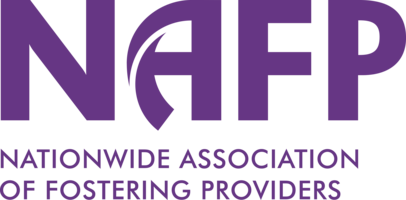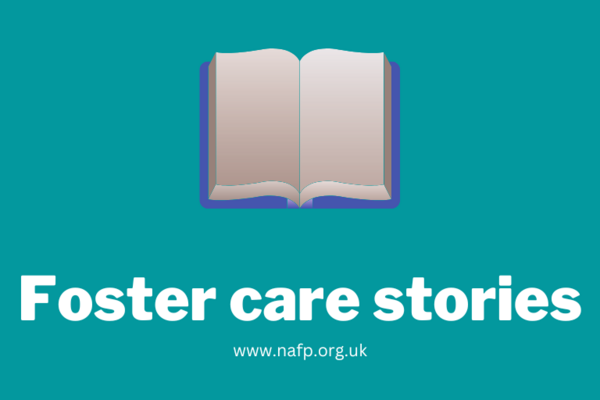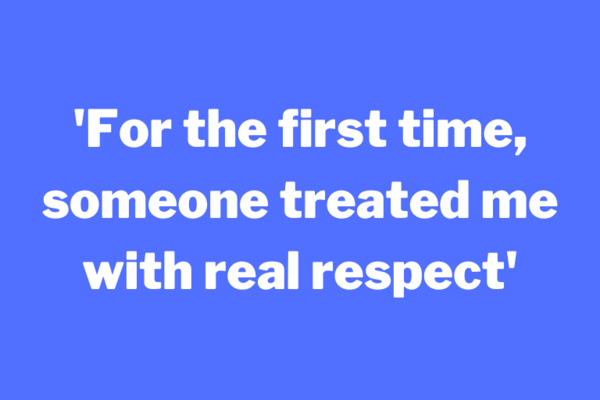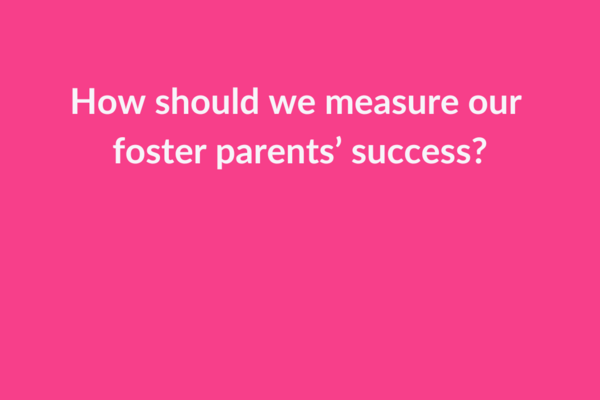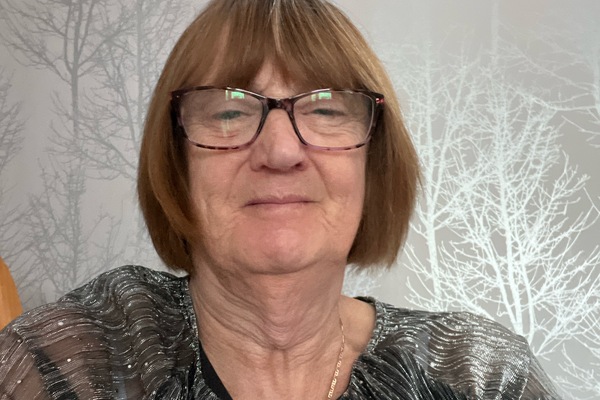Let’s kick off with how you got into fostering. Why did you want to do it and how have you found it?
We wanted to foster for many years, but when the grandchildren started to come thick and fast we put it on the back burner. We were busy babysitting the kids whilst their Mums and Dads went to work. Just before the pandemic, Paul started talking about it again. The grandkids loved being with us and we knew we could give these kids the patience, understanding, and love they needed. We got in touch with an agency to see whether they would take us. I am severely sight impaired and I was worried that it might impact us being able to foster, but it didn't. We like that it’s something we can do together, and we got our first placement in May 2020, during the first lockdown. We were excited, but it was also a little bit scary. We wanted to get everything right, and just be good enough for the children.
Fostering keeps you active. We do things that we never thought we would be doing at 59 and 61, like going to tap classes, horse riding and standing at the end of a football pitch in the middle of the winter. We take the kids camping, we’ve put sumo suits on and wrestled each other, and have had so much fun along the way. I only wish we'd done it years ago. You see the impact you have on these kids and it makes us feel that we were meant to do this. We could have changed so many little lives by now, but at the time we didn’t know what fostering entailed and we didn’t think that we’d be able to give the time to foster children if we were babysitting. Looking back, we realise this isn’t the case at all.
Starting your fostering journey during lockdown must have been challenging. How did you find it?
I’d say it was more challenging for the children because they couldn't go out and do the things they wanted to do, or the things they would normally be able to do. They missed their friends, but the restrictions were in place so we couldn’t do anything about it. For us, it was brilliant because it gave us time to get to know them a bit better.
We’d love to hear your big success story!
We’ve had success with all the kids we've had, and we’ve also learned a lot from each placement we’ve had. Two Nigerian girls stayed with us and we got to learn new cooking skills as well as about their culture, and it was just amazing. We went shopping together so they could pick out the ingredients they wanted. When the children went to contact to see their parents, we built up a bond with the whole family. Their parents are wonderful people – their Dad even got some Nigerian clothing made for us – and it was lovely for the children to see a relationship develop between their parents and carers. They went back to their parents, which is a success story in itself, and they have stayed in touch with us. We still go and visit them and their parents, and it’s lovely.
Relationships with parents can sometimes be tricky, but you’ve built many positive relationships with them over the years. How do you do this?
It’s important to show the children that adults can act responsibly. We've not had a problem with any of our foster children's parents. Partly, I think it’s because you get treated the same way you treat somebody and they’ve always been so kind to us. We get them Christmas presents and have a pleasant chat when we drop the children off for contact. They are the parents no matter what's happened, and that's not for us to judge. We’re here to look after the kids and make sure they are happy, and it really makes them happy when they know there's no animosity between us. If their parents feel comfortable around us, it helps make them feel comfortable around us too.
What resources have you found helpful?
We were told right from the beginning that our supervising social worker would always be there for us, and she is. They are always at other end of the phone if we want advice on something, even if it’s just to ask “what's your take on this?” We haven’t had any major issues, but it’s always helpful being able to get advice on certain things, like school. Because we started in lockdown, we did all our meetings over Teams and I was also buddied up with someone in our foster agency if I needed any advice. We'd have a nice walk around the park and talk about anything that I wasn't sure about, or ask for advice. Our agency is brilliant: they really look after you and make you feel like you’re part of the family.
You were worried that your sight impairment might affect your chances of fostering, and it’s great that this wasn’t the case. What would your advice be for disabled people wanting to foster?
Having a visual impairment hasn’t made a difference to my ability to foster: I’m no different to anybody else, I just do things differently. I can do everything a fully sighted person can do, only I do it in a different way. If I'm putting the house alarm on, for example, I remember where all the buttons are. I have to rely on my memory more than my sight, but you just get used to it and use what you have. None of the children we’ve had have been phased by it. They know not to leave bags on the floor, and often remind me to watch out for the step. Children are very understanding and it teaches them about empathy and ability.
I doubted myself a little bit in the beginning. I worried that I’d be turned down, but it wasn’t an issue at all. The important thing is that you can keep a child safe and in doing so you can change somebody's life, and that’s what fostering agencies are really looking out for.
We know that fostering can be tough at times. How do you deal with this?
The rewards far outweigh the challenges, but you still need to have thick skin. When children say things that are meant to upset you, you have to remember that it’s the situation that they are angry with, not you. If you can manage these times with humour it works out better for everybody. If you come down to their level you’re able to get through to the children a whole lot better. Of course, you need to provide boundaries, but equally the kids need to know that they shouldn’t be scared to talk about anything. There's nothing we can’t fix.
And finally, what’s the most rewarding part of the job?
Every child has left their mark on our home: their names have been stenciled on pieces of wood and are screwed onto the fence, so the memory of them being here will be there forever. Their stamp is everywhere no matter where we are in our house, from the gnomes they’ve placed in the garden, to the Nigerian music on the Alexa playlist. It is lovely to be reminded of all the wonderful children who are part of our family.
One of the rewarding things is when the children move on and still keep in touch. There's nothing better than waking up to a message with a big love heart that says “I love you Auntie”. Three years ago we were worrying about whether we would be good enough, but you know you've done something right when you still hear from them. It is upsetting when the kids move on because you build a bond with them, but to know that they're still thinking about you when they're back home is lovely.
It’s also rewarding when you think back to what the children were like when they first came to us, and look at how far they have come a few months down the line. The little girl we've got now has been with us for eight months and she’s a completely different character. She was shy and introverted in the early days, but now she goes to tap dancing and horse riding on the weekends. After school she does acro, stretch and strength, and girl guides. She’s really grown into herself and her personality has started to come out. We always encourage her to be the best she can be.
This makes you more confident as time goes on. We can see that what we do and the way we do things are working. You can't always get everything right, but over time you gain experience and the feedback from young people and professionals helps you know that you’re on the right track.
